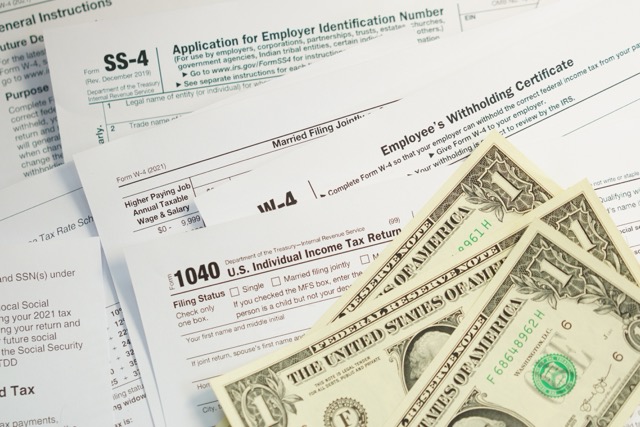E-File.com And State Refund Delays
In today’s digital age, e-filing has become a standard practice for taxpayers looking to streamline their tax submissions. E-File.com serves as a pivotal platform in this process, allowing individuals to file their tax returns quickly and efficiently. However, as many taxpayers are discovering, the convenience of e-filing does not always guarantee timely state refund processing. This article delves into the role E-File.com plays in tax filings, explores common reasons behind state refund delays, examines how E-File.com addresses these issues, and offers practical tips for navigating refund delays effectively.
Understanding E-File.com and Its Role in Tax Filings
E-File.com is an online platform designed to simplify the tax filing process for individuals and businesses alike. By providing an easy-to-use interface and various filing options, E-File.com enables users to complete their returns quickly and submit them electronically to the IRS and state tax agencies. The platform guides users through the complexities of tax law, ensuring they can claim all eligible deductions and credits, which can significantly enhance their refund potential.
E-File.com also emphasizes security and accuracy in its operations. The platform employs advanced encryption technologies to protect users’ sensitive information and minimizes the likelihood of errors in tax submissions. By providing real-time updates and confirmations, E-File.com makes it easier for taxpayers to track their returns, alleviating some anxiety surrounding the filing process. However, despite these advantages, users may still face challenges when it comes to receiving their state refunds promptly.
Common Reasons for State Refund Delays This Tax Season
This tax season, many taxpayers have reported delays in receiving their state refunds, and several common factors contribute to these hold-ups. One of the primary reasons is the increased volume of tax returns filed electronically. The surge in e-filing has led to a backlog at various state tax agencies as they work to process an unprecedented number of returns. Many states have not fully adjusted their systems for the influx, resulting in extended processing times.
Another significant factor is the additional scrutiny applied to tax returns. States are increasingly taking measures to combat tax fraud, leading to longer processing times for returns that contain discrepancies or require further validation. Taxpayers who have claimed certain credits or deductions may find that their returns are subject to more rigorous reviews, contributing to delays. Coupled with changes in tax legislation and updates to processing systems, these factors create a perfect storm for delayed refunds.
How E-File.com Addresses Refund Processing Issues
E-File.com is aware of the potential challenges taxpayers face regarding state refund delays and proactively addresses these issues. The platform provides users with resources and support to help them understand the refund process better, including estimated timelines for state refunds and tips for avoiding common pitfalls during filing. By empowering users with knowledge, E-File.com helps to demystify the refund process and set realistic expectations.
Additionally, E-File.com offers a customer support team that is readily available to assist users with any questions or concerns. Whether it’s tracking the status of a state refund or addressing specific issues related to tax filings, E-File.com aims to provide a seamless experience for its users. The platform is dedicated to ensuring that taxpayers feel supported throughout the filing process, even when external factors lead to delays.
Tips for Navigating State Refund Delays Effectively
Navigating state refund delays can be frustrating, but there are practical steps taxpayers can take to manage the situation more effectively. First, taxpayers should regularly check the status of their refunds through their state’s tax agency website. Most states offer online tools that allow users to see the current status of their refunds, which can provide peace of mind and keep them informed.
Another helpful tip is to be proactive in communication. Should taxpayers experience significant delays beyond the expected timeframe, reaching out to their state tax agency can provide clarity on the situation. Keeping detailed records of all communications and confirmations related to their tax filings can also be beneficial. Taxpayers should ensure that their contact information is up-to-date to facilitate any necessary communication regarding their refunds.
In conclusion, while E-File.com offers a streamlined and efficient means of submitting tax returns, it cannot fully eliminate the potential for state refund delays. Factors such as increased filing volumes and enhanced scrutiny can significantly impact the timeline for receiving refunds. By understanding these challenges and utilizing the resources provided by E-File.com, taxpayers can better navigate the complexities of the tax season. With proactive steps and effective communication, individuals can mitigate the frustrations often associated with refund delays, leading to a more positive overall experience.
